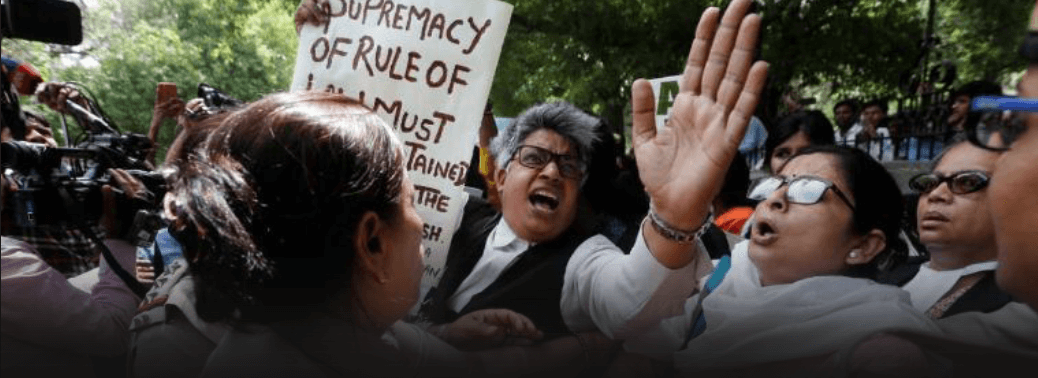CJI SEXUAL HARASSMENT CASE: HAVE A RIGHT TO COPY OF BOBDE PANEL REPORT, SAYS COMPLAINANT
08, May 2019

Prelims level : Governance
Mains level : Governance, Constitution, Polity, Social Justice and International Relations
Why in News:
- The former apex court staffer wrote to the in-house panel, which found “no substance” in her sexual harassment allegations against the CJI.
Details:
- If a copy of the report is being given to the CJI directly or indirectly, I am entitled to a copy thereof in any case,” the woman appealed to the committee.
- The Sexual Harassment of Women at the Workplace (Prevention, Prohibition and Redressal) Act, 2013, in Section 13 provides that both parties have a right to receive a copy of the report.
- Not providing a copy to the complainant while holding her complaint to be unfounded would be a violation of the principles of natural justice and a complete travesty of justice,” the Supreme Court is relying on a judgment which pre-dates the Right to Information (RTI) Act of 2005 which mandates the fundamental right to information.
Under RTI:
- The complainant she quoted a full-bench judgment of the Delhi High court in the case of disclosure of assets of judges, saying “the full bench had held that even assets of judges would be accessible under RTI to any citizen”
- The complainant said she had been treated as an “outsider” from the very beginning of the inquiry process.
What were the earlier Vishaka guidelines?
- The Vishaka guidelines were laid down by the Supreme Court in Vishakha and others v State of Rajasthan judgment in 1997.
- It imposes three key obligations on employing institutions – prohibition, prevention, and redress. The institutions are mandated to establish a Complaints Committee.
- This was to look into matters of sexual harassment of women at the workplace. These guidelines are legally binding
Sexual Harassment of Women at Workplace
- Sexual Harassment of Women at Workplace (Prevention, Prohibition and Redressal) Actwas passed in 2013. It broadens the Vishaka guidelines, which were already in place.
- An aggrieved victim is a woman “of any age whether employed or not”, who “alleges to have been subjected to any act of sexual harassment”.
- The Act thus covers the rights of all women working or visiting any workplace, in any capacity. Sexual harassment is any one or more of “unwelcome acts or behaviour”, committed directly or by implication.They include:
- Physical contact & advances
- A demand or request for sexual favours Sexually coloured remarks
- Showing pornography
- Any other unwelcome physical, verbal or non-verbal conduct of sexual nature






